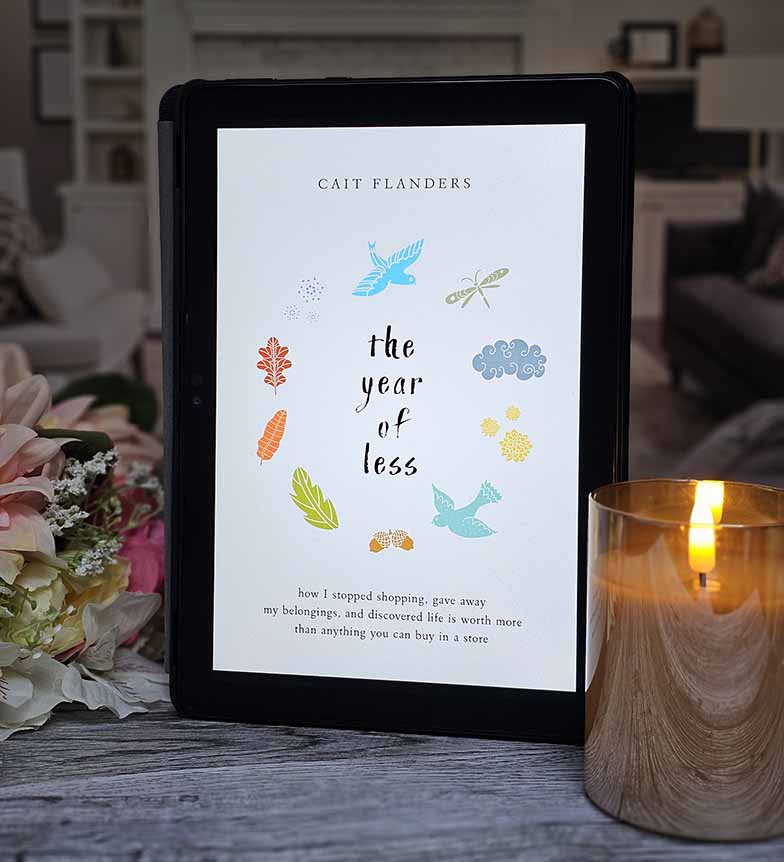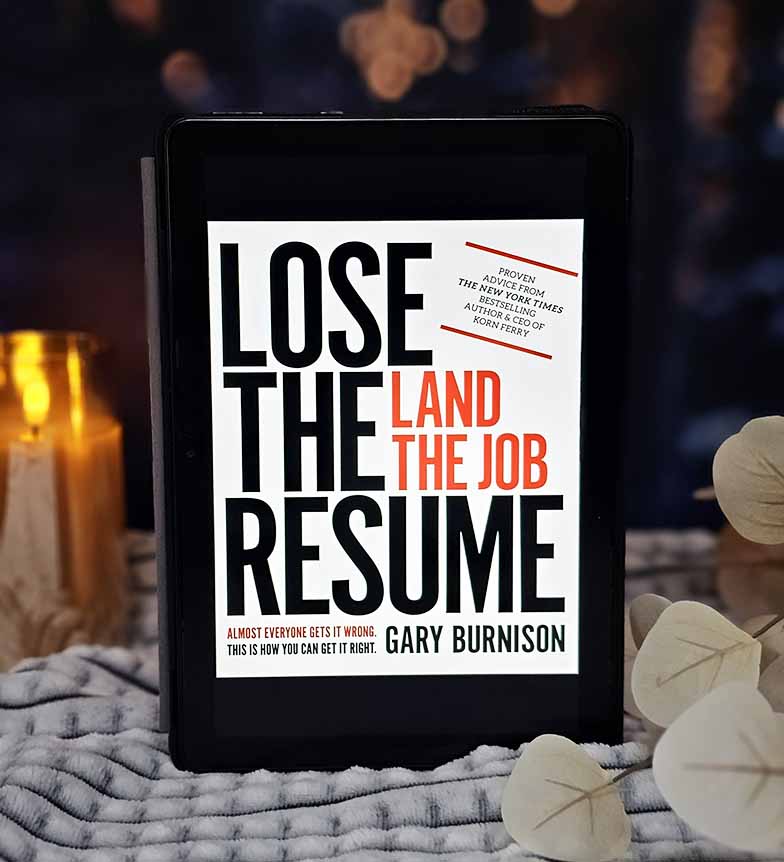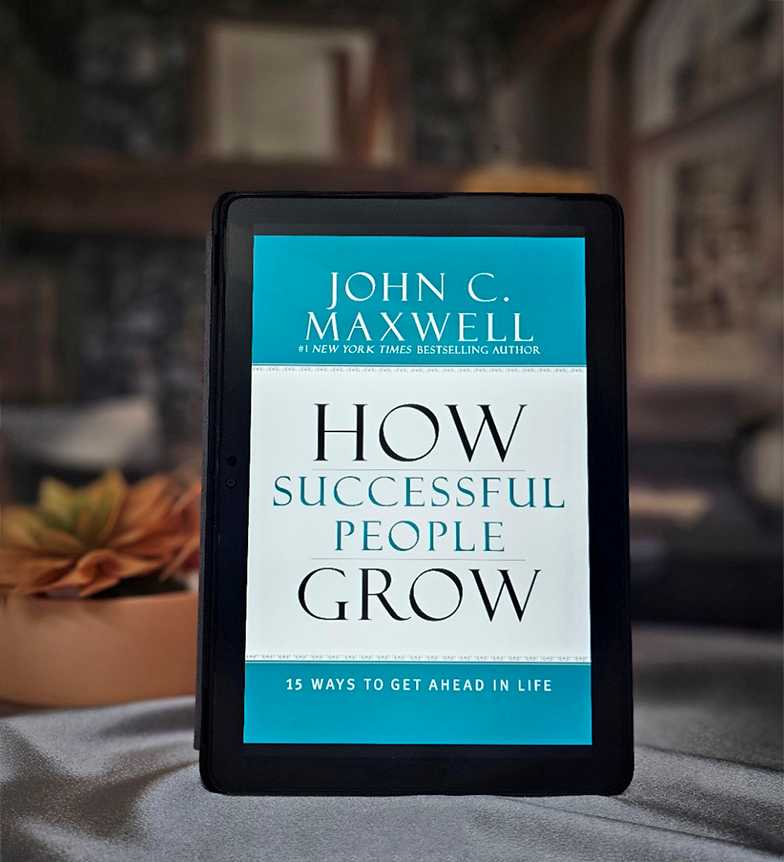
The Year of Less
by Cait Flanders
A deeply personal memoir about one woman's year-long shopping ban and her journey toward mindful consumption and intentional living.
Spoiler Warning
This review may contain spoilers. Read at your own discretion if you haven't finished the book yet.
Breaking the Consumption Cycle: A Journey from Stuff to Self-Discovery
The Year of Less transcends typical minimalism literature by offering a brutally honest exploration of the emotional and psychological drivers behind our consumption habits. Cait Flanders transforms what could have been a simple financial experiment into a profound journey of self-discovery, revealing how our relationship with stuff often reflects deeper issues about identity, self-worth, and emotional regulation. This memoir serves as both practical guide and philosophical exploration of what it means to live intentionally in a consumer-driven culture.
The Experiment: Beyond Financial Savings
Flanders' decision to implement a year-long shopping ban began as a practical response to financial stress and debt, but quickly evolved into something much more significant. By committing to purchase only essentials, she created space to examine the unconscious patterns and emotional triggers that had been driving her spending for years.
The experiment's structure—clear rules, defined exceptions, regular check-ins—provides a framework that readers can adapt while the deeper exploration reveals universal patterns about consumption, identity, and fulfillment in modern life.
The Psychology of Consumption
Shopping as Emotional Regulation
One of the book's most valuable contributions is its exploration of shopping as emotional regulation. Flanders demonstrates how retail therapy functions as a socially acceptable form of self-medication, temporarily alleviating boredom, anxiety, depression, and loneliness while ultimately creating new problems and avoiding underlying issues.
Her analysis of shopping triggers—specific emotional states, social situations, and environmental cues that prompt purchasing decisions—provides readers with tools for recognizing their own unconscious patterns.
Identity and Acquisition
The memoir explores how consumption becomes tied to identity construction in consumer culture. Flanders reveals how she had been using purchases to project desired versions of herself rather than developing those qualities authentically. This insight transforms the shopping ban from deprivation into liberation.
The Addiction Parallel
Drawing on her experience with sobriety, Flanders makes compelling connections between shopping addiction and substance addiction, showing how both involve using external substances or behaviors to manage internal emotional states. This perspective adds depth and compassion to discussions about overconsumption.
Personal Transformation Through Constraint
Discovering Authentic Values
The imposed limitations of the shopping ban forced Flanders to clarify what she truly valued versus what she thought she should value. This process of values clarification became one of the most transformative aspects of the experiment, affecting decisions far beyond spending.
Creativity Within Constraints
Rather than feeling deprived, Flanders discovered that constraints fostered creativity. Limited to existing possessions, she found new ways to use what she owned, developed new skills, and discovered interests that didn't require purchasing anything.
Relationship and Experience Focus
With shopping removed as entertainment and emotional regulation, Flanders naturally shifted toward experiences and relationships for fulfillment. This shift revealed how consumption had been occupying time and attention that could be better invested elsewhere.
Practical Implementation Framework
Rule Setting and Boundary Creation
The book provides detailed guidance on establishing clear rules for a shopping ban, including how to define "essentials," handle edge cases, and create accountability systems. Flanders' transparency about her own rule modifications and exceptions makes the approach feel realistic rather than rigidly perfectionist.
Trigger Identification and Management
Flanders shares specific strategies for identifying emotional, social, and environmental shopping triggers, along with alternative responses that address underlying needs without spending money.
Alternative Activities and Coping Strategies
The memoir includes extensive discussion of activities and practices that can replace shopping as entertainment, stress relief, and emotional regulation—from creative projects to physical activities to social connections.
Social and Cultural Commentary
Consumer Culture Critique
While personal rather than political, the book offers implicit critique of consumer culture's promise that happiness and fulfillment can be purchased. Flanders' experience demonstrates the hollowness of these promises while showing alternatives.
Social Pressure and Conformity
The memoir explores how social expectations around consumption create pressure to spend money on appearances, experiences, and possessions that may not align with personal values or financial reality.
Digital Age Consumption
Flanders addresses how social media and online shopping create new challenges for mindful consumption, including comparison culture and the gamification of purchasing decisions.
Writing Quality and Narrative Structure
Honest Self-Examination
Flanders' willingness to examine her own motivations, mistakes, and psychological patterns without defensiveness creates authenticity that makes her insights more credible and relatable.
Accessible Personal Finance Integration
The book seamlessly integrates personal finance concepts with psychological and lifestyle insights, making financial literacy feel approachable and personally relevant.
Progress Documentation
The chronological structure allows readers to experience the gradual changes in Flanders' thinking and behavior, making the transformation feel achievable rather than dramatic or unrealistic.
Contemporary Relevance
Sustainability Consciousness
The book's themes align with growing awareness about environmental sustainability and the environmental cost of overconsumption, though Flanders approaches these issues through personal rather than political lenses.
Economic Uncertainty
In an era of economic uncertainty and student debt, the book's financial insights about living below your means and finding fulfillment outside consumption feel particularly relevant.
Mental Health Awareness
The memoir's exploration of shopping as emotional regulation connects with contemporary discussions about mental health, self-care, and healthy coping mechanisms.
Target Audience and Applications
Financial Stress Relief
Readers struggling with debt, overspending, or financial anxiety will find both practical strategies and psychological insights that address root causes rather than just symptoms.
Minimalism Exploration
Those interested in minimalism but overwhelmed by extreme approaches will appreciate Flanders' moderate, psychologically-aware method that focuses on mindfulness rather than deprivation.
Personal Development Enthusiasts
The book appeals to readers interested in intentional living, self-awareness, and personal growth who may not initially be focused on consumption issues but recognize their relevance to broader life satisfaction.
Addiction Recovery
People in recovery from various addictions may find valuable parallels and insights in Flanders' approach to changing compulsive behaviors and addressing underlying emotional needs.
Strengths of the Approach
Psychological Depth
Unlike books that focus solely on practical minimalism tips, this memoir addresses the emotional and psychological aspects of consumption that make behavioral change sustainable.
Realistic Expectations
Flanders' honest discussion of challenges, setbacks, and ongoing struggles makes the approach feel achievable rather than perfectionist.
Holistic Life Impact
The book demonstrates how changes in consumption patterns can affect all areas of life—relationships, career, health, creativity—rather than just finances.
Individual Adaptability
Rather than prescribing a one-size-fits-all approach, Flanders provides principles and frameworks that readers can adapt to their own circumstances and goals.
Areas for Further Exploration
Systemic Considerations
While the book focuses on individual change, some readers might want more discussion of systemic factors that promote overconsumption and structural barriers to financial security.
Long-Term Sustainability
The memoir covers one year; readers might benefit from more discussion about maintaining mindful consumption practices over longer periods and through life changes.
Cultural Context
The approach may require adaptation for different cultural contexts or economic circumstances beyond those Flanders experienced.
Final Assessment
The Year of Less succeeds because it treats consumption as a lens for examining deeper questions about identity, values, and fulfillment rather than simply as a financial or organizational problem. Flanders has created a memoir that works simultaneously as practical guide, psychological exploration, and social commentary.
The book's greatest strength is its integration of external behavior change with internal awareness development. Rather than promoting deprivation or extreme minimalism, it advocates for conscious consumption based on authentic values and emotional awareness.
This is essential reading for anyone seeking to develop a healthier relationship with money and stuff, but its insights about emotional regulation, values clarification, and intentional living make it valuable for readers interested in personal growth more broadly. Flanders has created a work that will resonate with anyone who has ever felt controlled by their possessions rather than the other way around.
Rating: 5.0/5 ⭐
Perfect for: Anyone struggling with overspending, minimalism seekers, personal development enthusiasts, readers interested in mindful living
Consider carefully if: You prefer purely practical financial advice without psychological exploration, or consumption isn't an issue you recognize in your life
Her approach is realistic and sustainable. She doesn't advocate for extreme minimalism but rather for intentional, mindful consumption that aligns with your values and actual needs.
The book serves as both memoir and practical guide, making it accessible for anyone interested in examining their own relationship with money and consumption.
You Might Also Like

Lighter Living
by Lisa J. Shultz
A practical and compassionate guide to simplifying your life by letting go of physical and emotional clutter. Lisa Shultz offers concrete strategies for creating space, reducing overwhelm, and living with greater intention and peace.

Lose the Resume, Land the Job
by Gary Burnison
A modern approach to job searching that emphasizes relationship-building and personal storytelling over traditional resume-focused strategies.

How Successful People Grow
by John C. Maxwell
A practical guide to personal and professional development from leadership expert John C. Maxwell, exploring the habits and mindset that drive continuous growth.